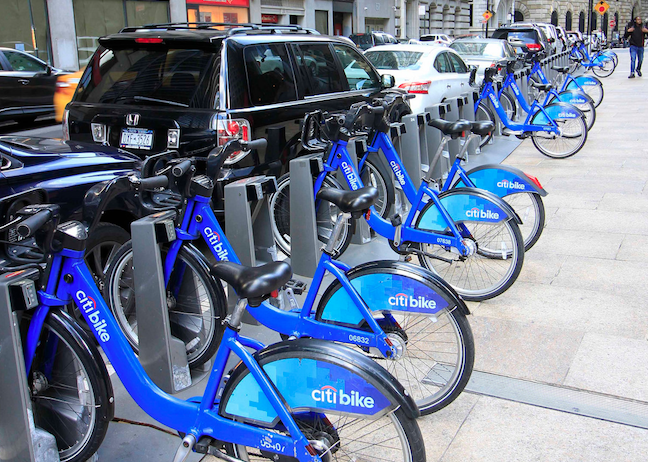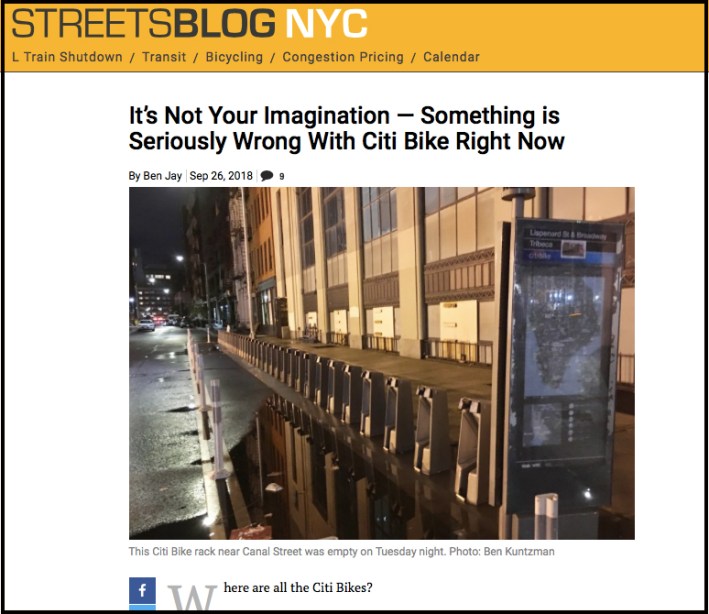Citi Bike officials, responding to Streetsblog's world exclusive this morning about widespread problems with the 12,000-bike fleet, now say the crisis stems from "unusual damage on some of our handlebars."
The following message was emailed early Wednesday afternoon to Citi Bike's 145,000 annual members:
Dear Citi Bike Member,
We know you rely on Citi Bike to get around New York City, and we're grateful to have you as a member of our community. As part of our efforts to provide you with the best possible service, we wanted to update you on an issue that is currently resulting in lower-than-usual levels of bike availability.
We've recently seen unusual damage on some of our handlebars, and out of an abundance of caution we've removed a part of our fleet from service. We are working to retrofit this part of the fleet with the new handlebar design that we introduced this summer. It is taking us longer than we would like to make these fixes and get the bikes back onto the street, and we apologize that it's harder than usual to find a bike. We're devoting extra resources to this issue and expect you will see an improvement in bike availability soon.
Your safety is incredibly important to us, and that's why we take bike maintenance so seriously. Thank you for your patience and understanding as we continue to work to provide you the best service possible.
Sincerely,
The Citi Bike Team
Left unanswered, of course, is the nature of the handlebar problem, which bikes are affected, and what it will cost to fix the problem. Streetsblog is pursuing those and other answers.
The statement follows Streetsblog's story this morning revealing that there were only 7,166 Citi Bikes in service on Tuesday, Sept. 25 — down from 9,112 bikes two weeks earlier.
That's a 21-percent drop in two weeks.
Even at the higher number, though, Citi Bike trails well behind other bike share systems in keeping its roadsters on the road.
A spot check on Tuesday showed that Chicago’s Divvy had 69 percent of its 5,800 bikes in racks or on the road, Toronto’s system had 83 percent, and Montreal’s Bixi had 89 percent.
Citi Bike had just 59 percent, down from the still-underwhelming 72 percent before the handlebar crisis. The city's contract with Motivate, the Citi Bike parent company, requires 97 percent of the fleet to be available.
The data comes from Bike Share Map, which displays live data from over 300 systems worldwide.
The Citi Bike member letter did not satisfy one Streetsblog reader, who emailed us congratulations for breaking the story.
"So basically they were just going to lie and try to get away with it, and now that they are worried they will get caught by the media, they come clean," our fan wrote. "That's a company with twisted ethics and little respect for the customer! As they say, it's not the crime, it's the cover-up."







